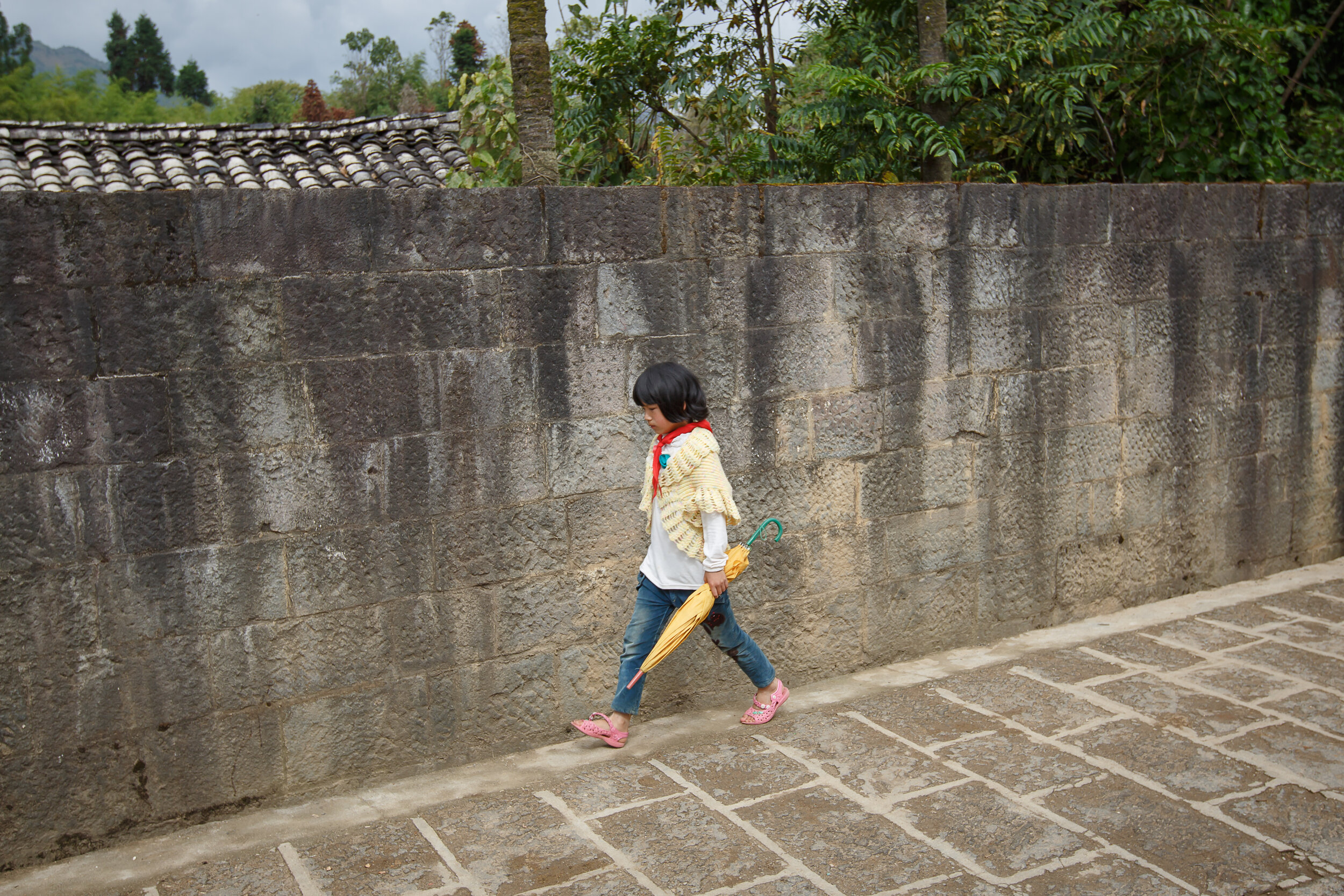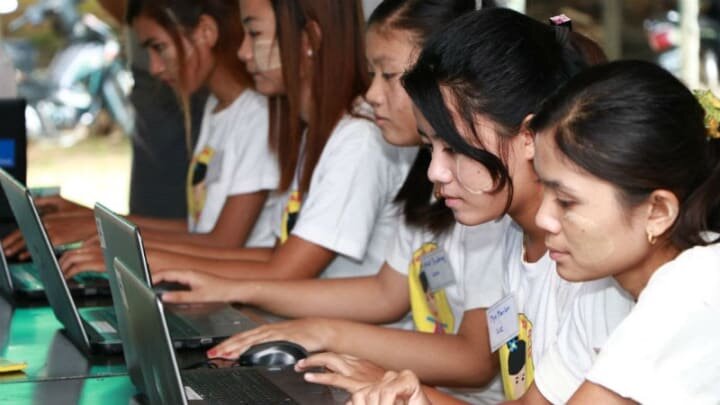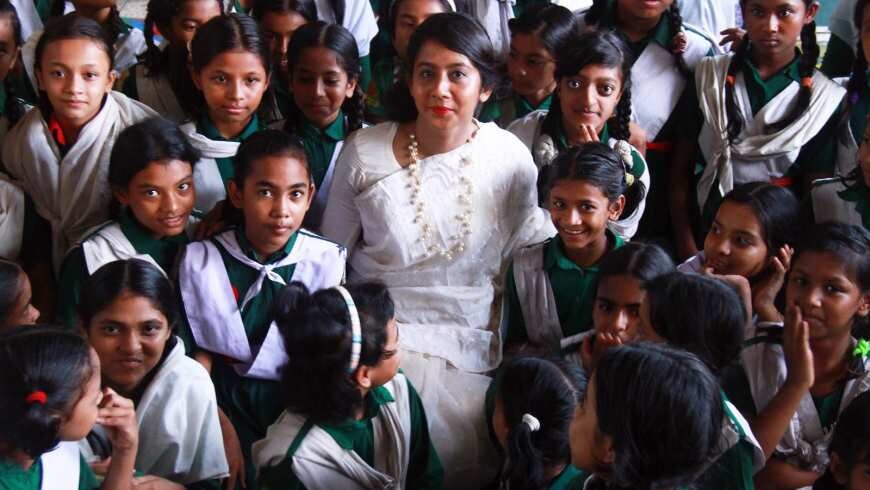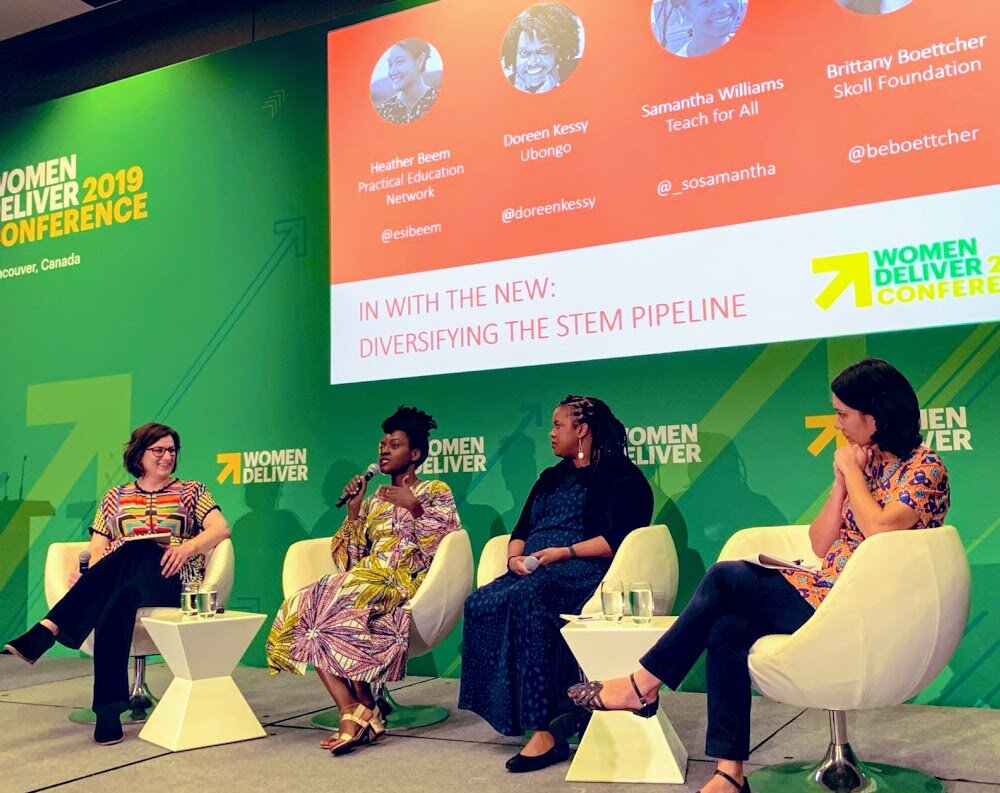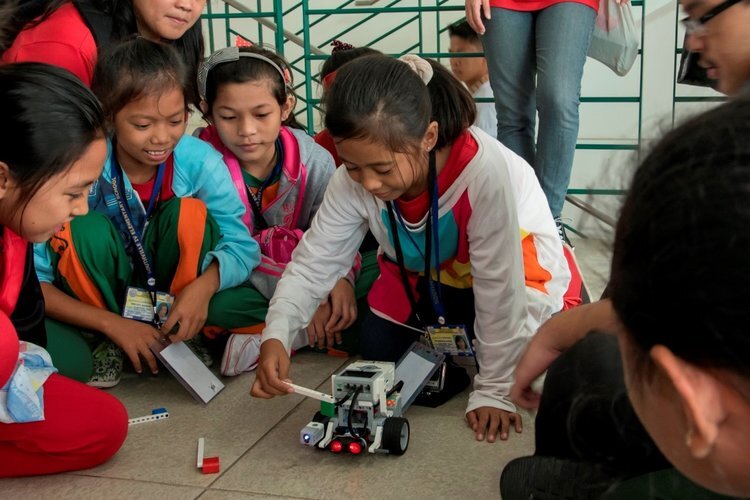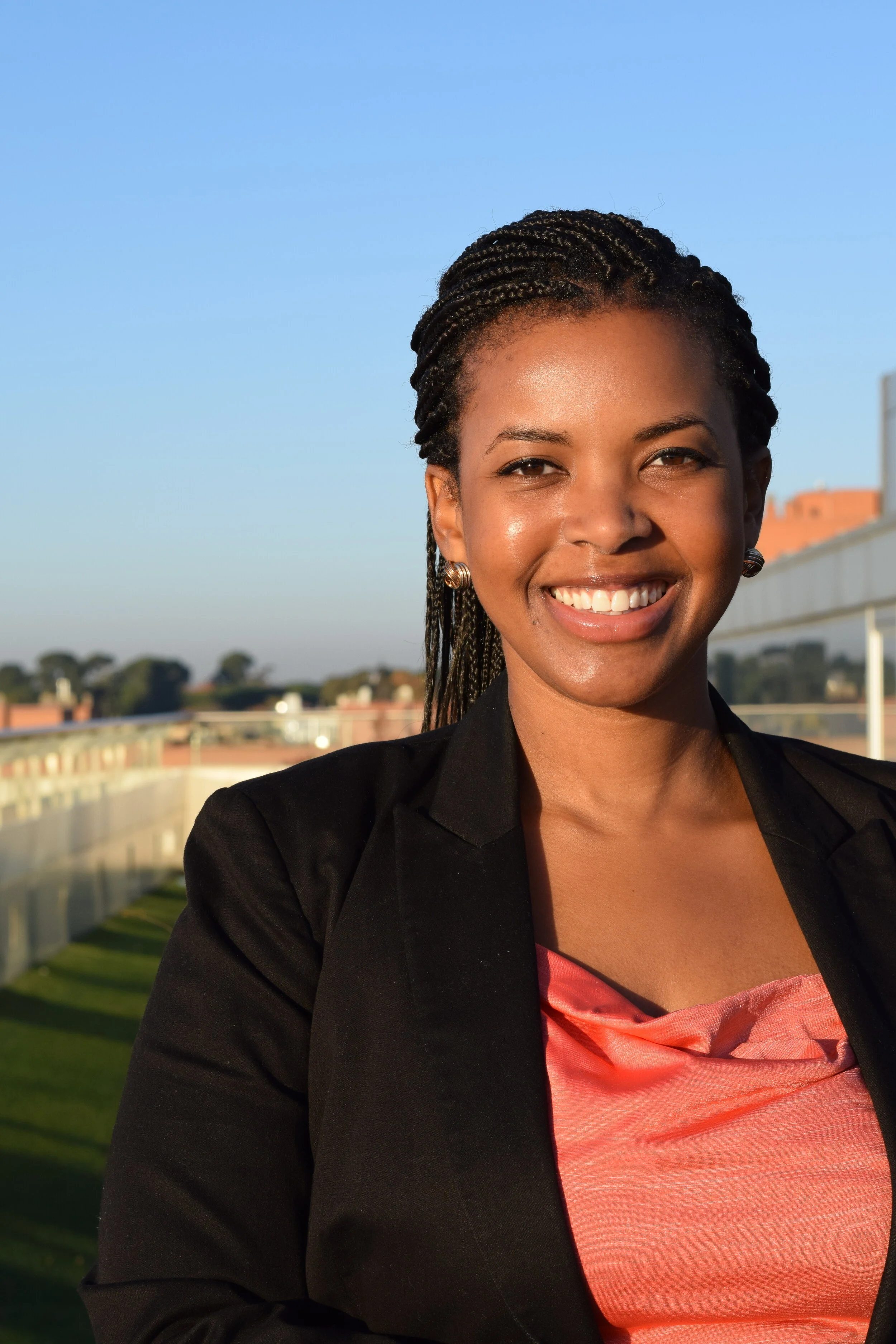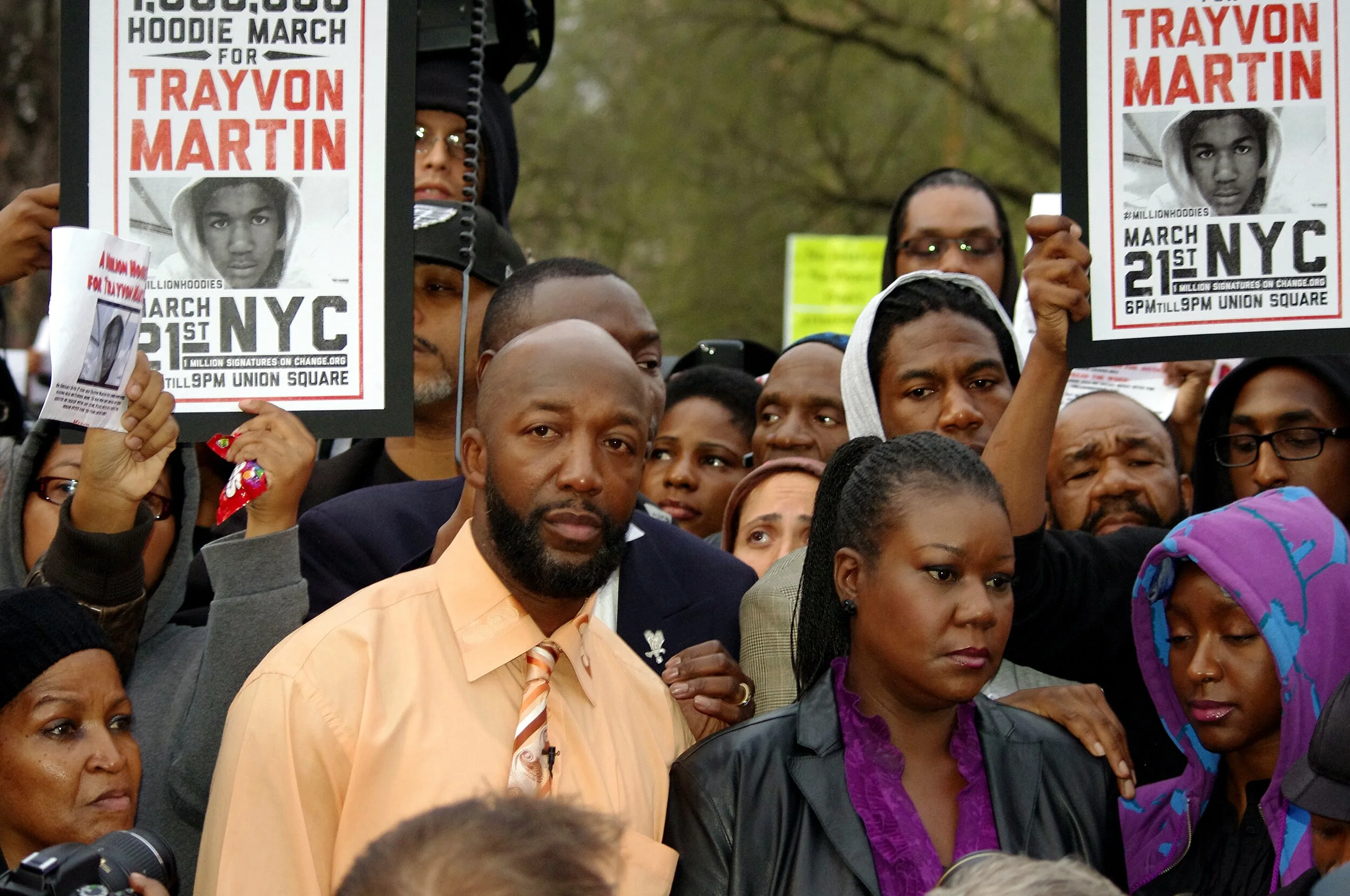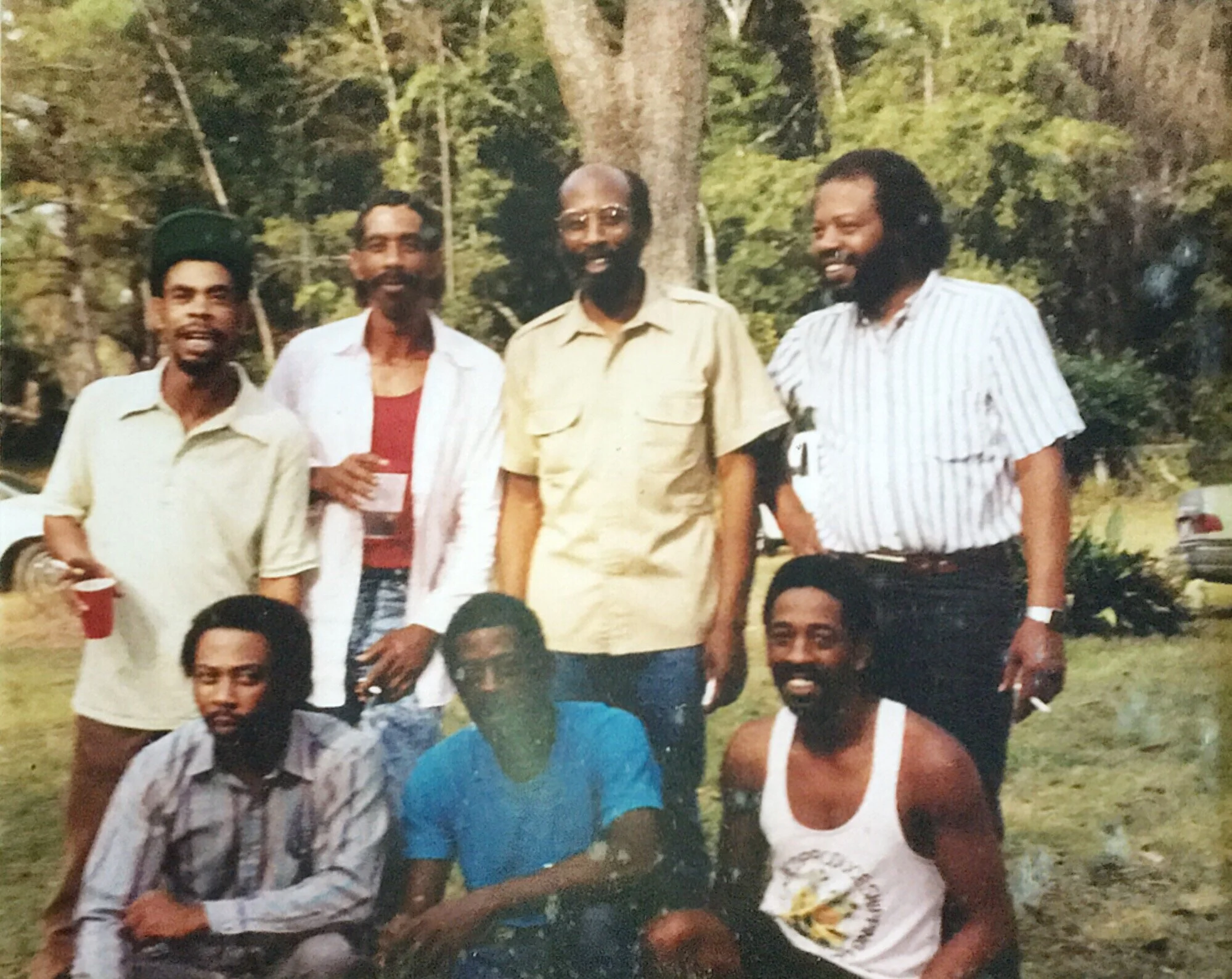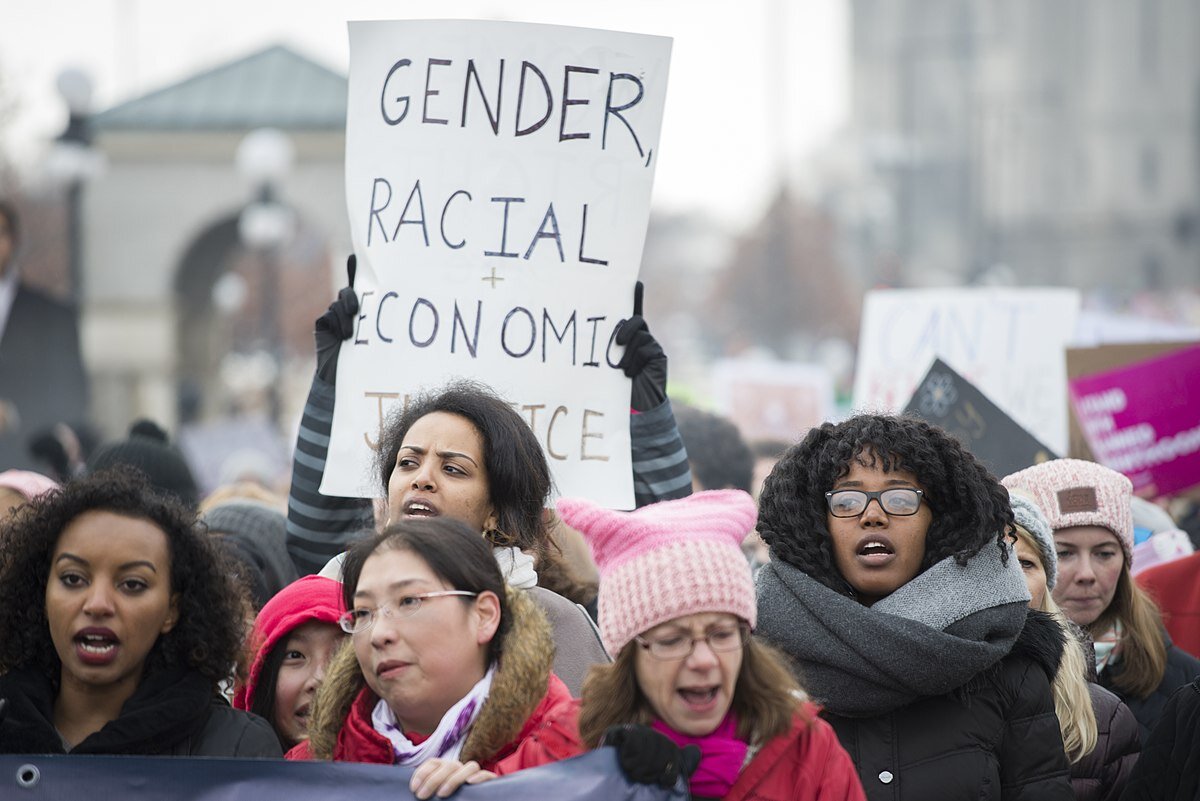Gender Equity
Womanity
I often hear from concerned teachers that girls don’t speak up in their classes. They want girls to feel comfortable sharing their opinions, answering questions, and taking part in debates.
However, the most important thing teachers must do is understand that tackling participation is not about addressing girls’ confidence. Rather, it is about ensuring that girls don’t face barriers to speaking up in the first place. We can and must set up expectations and systems that fully support the self-worth and belonging of girls.
Teach For All Blog
For girls and women, closed schools can create challenges that educators are racing to mitigate, including physical and sexual violence, increased caregiving and household responsibilities, loss of access to sanitary products and reproductive health materials (contraceptives, advice, counseling), and increased pregnancy rates. Given the stakes, educators must keep the gendered impact of this crisis in mind when seeking to support all children.
Devex
As the world struggles to address climate change, global health crises, and surging concerns around artificial intelligence and privacy, it feels particularly important to assess where we are in terms of girls’ and women’s participation in the fields of science, technology, engineering, and math. Fortunately, we’ve learned a lot about what it takes to get girls and women into STEM careers.
teachforall.org
Each year, Teach For All offers an intensive fellowship designed to provide teachers, alumni, and staff of network partners with the knowledge, tools, connections, and confidence to initiate change for girls in their communities. These Global Girls’ Education Fellows participate in a virtual learning course and join webinars with network and external experts, covering a range of topics related to girls’ education and leadership.
Teach For All Blog
Every day, thousands of teachers, social innovators, school leaders and policymakers in the Teach For All network observe first-hand the particular challenges facing girls. While much of this work must be done at the policy level — particularly around limitations on comprehensive sexuality education, policies that restrict pregnant girls and mothers’ access to school, and curricular and textbook reform — we also know that dedicated local action often leads to immediate and long-term impact for girls and women.
Teach For All Blog
What is the relevance of International Day of the Girl in 2018? As many countries approach parity in school enrollment between girls and boys, and as some countries are seeing women overtake men in enrollment and achievement at colleges and universities, it could be tempting to ask if it’s still necessary to devote a day to girls.
DIVERSITY, Equity, Inclusion and race
Stanford Social Innovation Review
In an equitable world, a child’s background would not determine their life outcomes. However, in reality, children whose families or communities face systemic disadvantages in everything from healthcare to education to employment are far less likely than children of privilege to secure the life opportunities they desire for themselves. (Image by Aurelia Durand)
al.com
I'm writing to talk directly to those people about something that I wish I'd had the knowledge to discuss 15 years ago. I'm writing to call out the flip side of what you all said to me. I want to explain how that view of black people is the exact same worldview that leads to the indiscriminate killing of black men, women and children. It's the same worldview that created and necessitates the Black Lives Matter movement.
Medium.com
We are nearly halfway through 2016, and yet I remember clearly how I found out that Trayvon Martin had died.
Opinion/Personal
reckonsouth.com
In mid-March, I left my apartment in New Orleans to quarantine in Alabama with my mom and youngest sister. As COVID unfolded and the need to lockdown somewhere became clear, we all packed into the house my dad built 30 years ago on a secluded wooded plot near Mobile.
Medium.com
If you stop at the limits of your innate talent, your life will never expand in the ways that you dream.
Medium.com
I was about ten years old and completely delighted to have learned something new about my father: he passionately hated the Dallas Cowboys. It therefore seems fitting that the last conversation I had with him would involve that nefarious team.
Medium.com
When one of my best friends told me that she had been sexually assaulted during a job interview, my first reaction was to rage. Yes, I raged against the man who had put his hands on her and asked her to do disgusting things. But I also raged against my friend — against her sitting there, against her decision not to report him and tear his company down, against her “letting him do it.” A decade earlier, I’d “let” someone assault me, too.
Education in Africa

Vimeo
Approximately 10.5 million Nigerian children are not in school, and 60% of those who do attend primary school aren't learning. In Uganda, 70% of children who enroll in school drop out before completing their primary education. And in Ghana, 91% of students in grade two can't read a word of English or their native language. Teach For All’s network partners in Africa are working to change these statistics.
Project Syndicate
When global leaders gather in Hamburg this week for the G20 summit, the new G20-Africa Partnership will take center stage. But those committed to helping Africa should focus squarely on the nuts and bolts of aid and development – and that means investing in local leadership.
teachforall.org
Teach For All’s work in Africa has brought us into contact with some of the most driven, high-impact social entrepreneurs in the world. Our work with Kennedy Odede has been a true privilege, as his passion for education and deep and personal conviction have helped push our sense of urgency and clarified our purpose in the region.
teachforall.org
Recently, Samantha Williams, Teach For All’s Director of Growth, Strategy, and Development – Africa, attended the launch of the United Nations’ 2013/14 Education For All Global Monitoring Report, which assesses the progress made toward the six Education For All goals established in 2000 at the World Education Forum in Dakar, Senegal. These are her reflections

